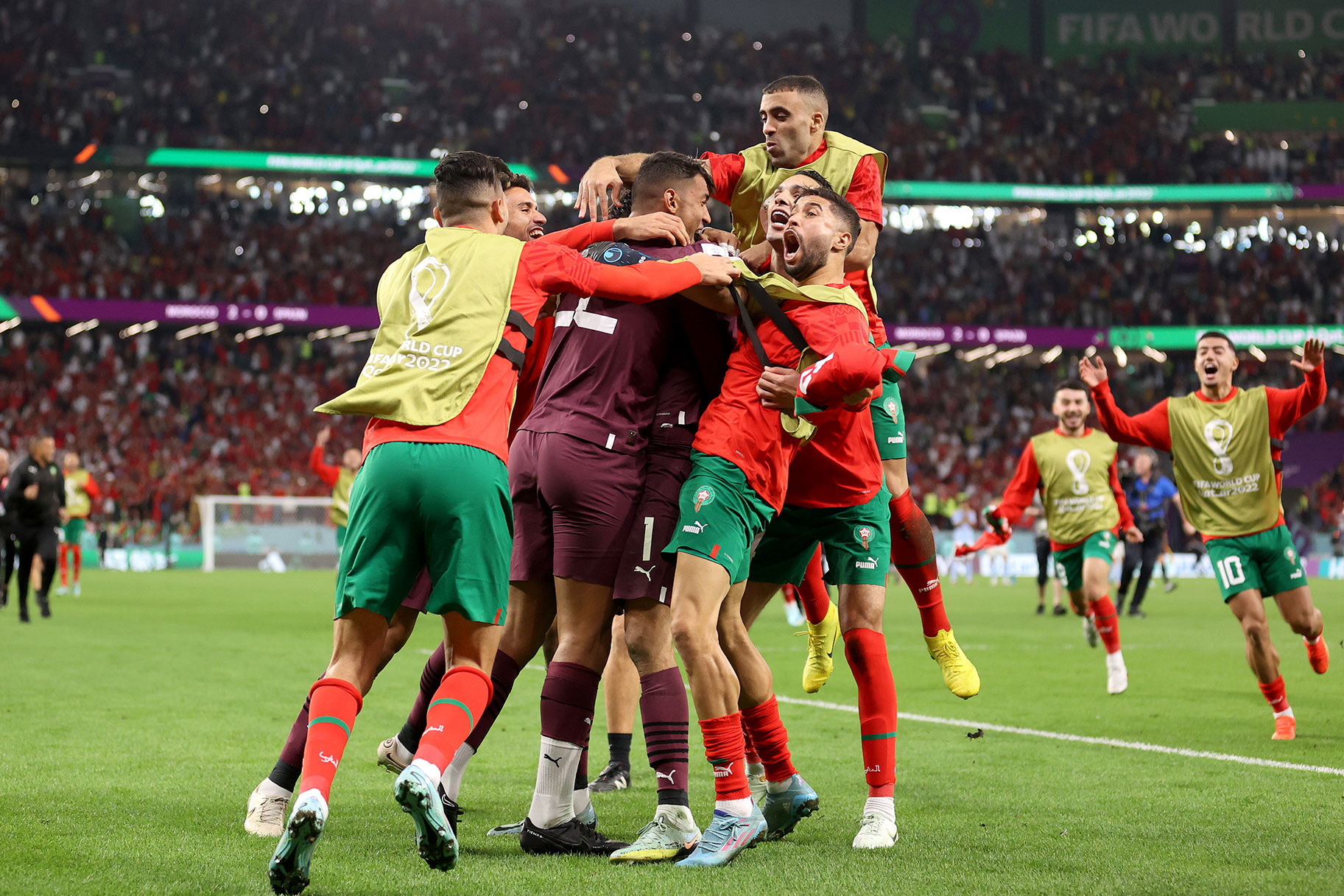What Are The World Cup's 'Extra Time' Rules And Why Isn't There A 'Golden Goal'?
For a couple of World Cup cycles, FIFA eschewed the traditional rules governing extra time in favor of a theoretically more dramatic format. It didn't work out.

Now that the group stages in the 2022 FIFA World Cup in Qatar have concluded, a number of nations have already been sent packing as the knockout stages ramp up. This is undoubtedly the time of the fabled tournament when blood pressures skyrocket as hard-fought pitch battles culminate in dramatic fashion, sometimes with extra-time heroics and sensational penalty shoutouts. That said, if you’re a historian of the game, you’ll remember an odd, if short-lived, era when the rules governing extra time were significantly different. We're talking of course, of the "Golden Goal" rule.
Introduced by FIFA in 1993 and employed in the 1998 and 2002 World Cups in France, South Korea and Japan, the Golden Goal rule was originally introduced as means of resolving matches in dramatic fashion. The rule played an integral role in the 2002 tournament with both South Korea and Senegal defeating Italy and Sweden in the Round of 16. Prior to those tournaments, it concluded the 1996 European Championship at Wembley Stadium with the Czech Republic falling to Germany after Oliver Bierhoff’s left-footed rip deflected off the keeper and into the corner of the goal.
RELATED: How To Sound Smart While Watching The World Cup With Friends
The rule is simple: the team that nets the first goal in extra time is instantly crowned the victor. Makes sense enough, right? Though easily understood, the effectiveness of the concept is nearly as divisive as whether to call the sport itself soccer or football, but we’ll save that debate for another day.
In an era of explosive growth within the sport, the mandate was always to try to expand the appeal of the game and bring in new audiences, and of course, more revenue. FIFA brass intended to amplify the tension during the periods of extra-time by creating the score-or-go-home scenario, and at the same time, enhance the spectator experience for both fans at the match and those watching at home. Proposed as a more marketable version of “Sudden Death,” the prevailing thought behind its inception was it would motivate players to take more risks, laying it all on the line for a shot at eternal glory. But often what appears to be the essence of a brilliant idea is also its Kryptonite.
Play began to stall in extra time as teams, fearful of conceding a goal, reigned in their attacking impulses in favor of a more strategically defensive mindset. With few teams ever venturing forward, counter attacks moved toward extinction, and squads began designing tactical schemes to get them into a shootout. From a bird’s eye perspective, what was thought to be an innovative choice swiftly became a noticeable barrier to the sport’s modern-day evolution, and some even pointed out the subsequent security issues it created at stadiums as the intense pressure to score could spiral into jeopardizing referees’ safety. Interestingly enough, before totally eradicating the rule, FIFA tried a variation of it with the “Silver Goal” where the squad leading after the first period in extra time extras would be declared the winner, but the ruling could never find favor with fans and players alike and was ultimately terminated.
In the end, the demise of the Golden Goal always seemed inevitable, and after the futile attempt with the Silver Goal in 2004, both were put to bed for good, and the traditional full 30 minutes of extra-time, comprised of two 15-minute halves, was restored in the 2006 World Cup. If teams remain tied after extra-time, the match cycles into standard shootout format, in which teams send five of their best penalty takers up to square off against the opposition's goalie. As we've already seen from the Round of 16 matchups between Croatia and Japan, and Morocco and Spain, there's no shortage of drama to be enjoyed, even if it's not necessarily "golden."













